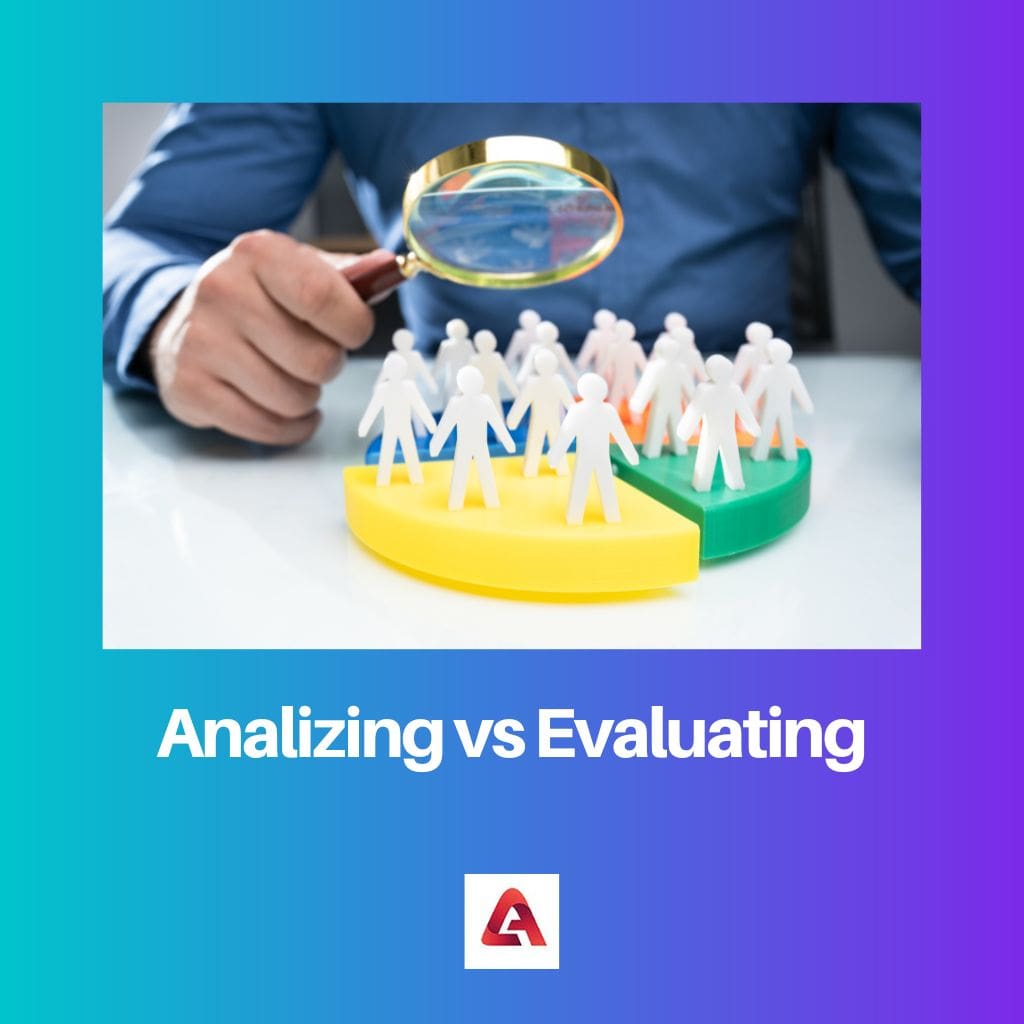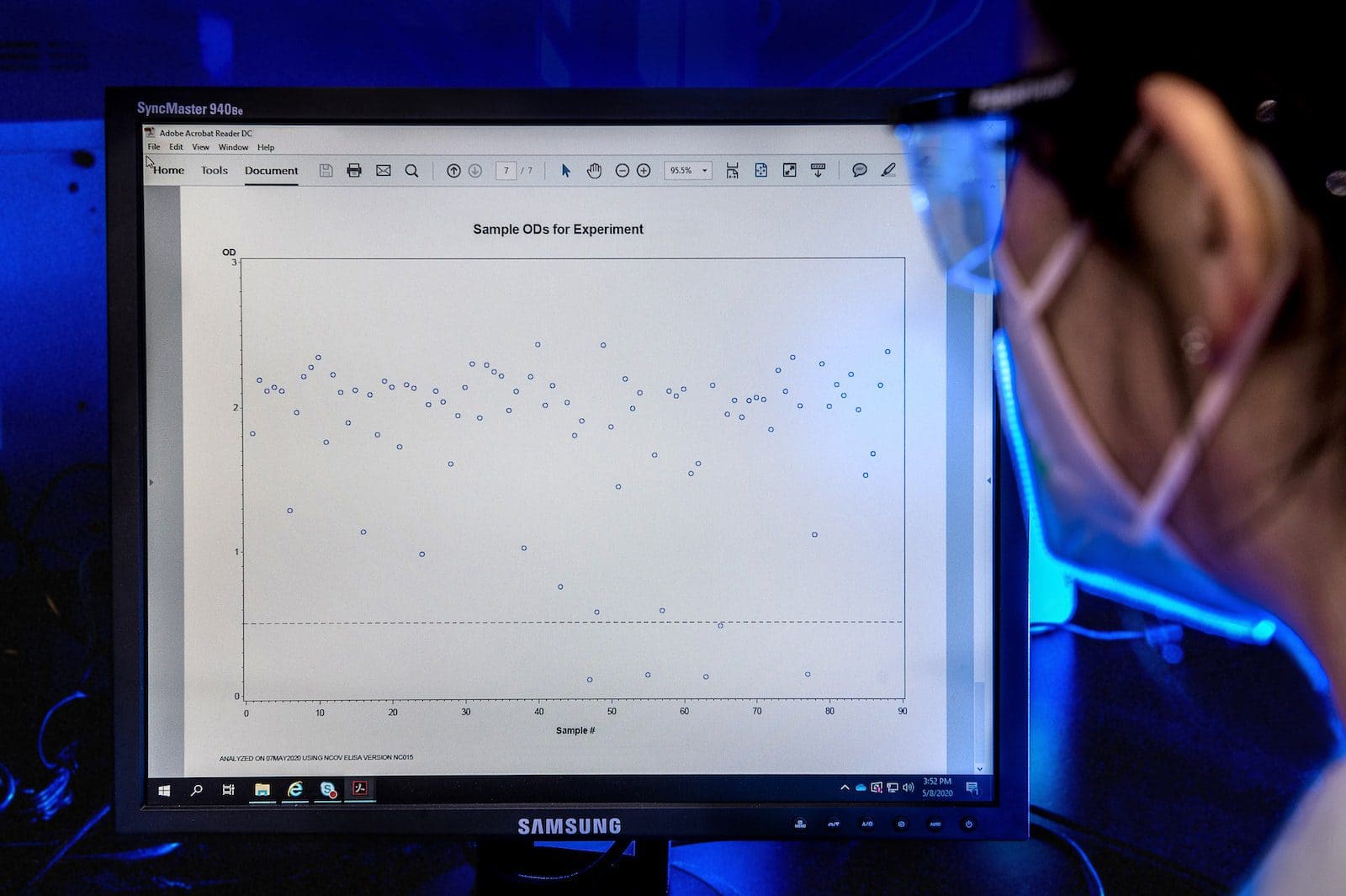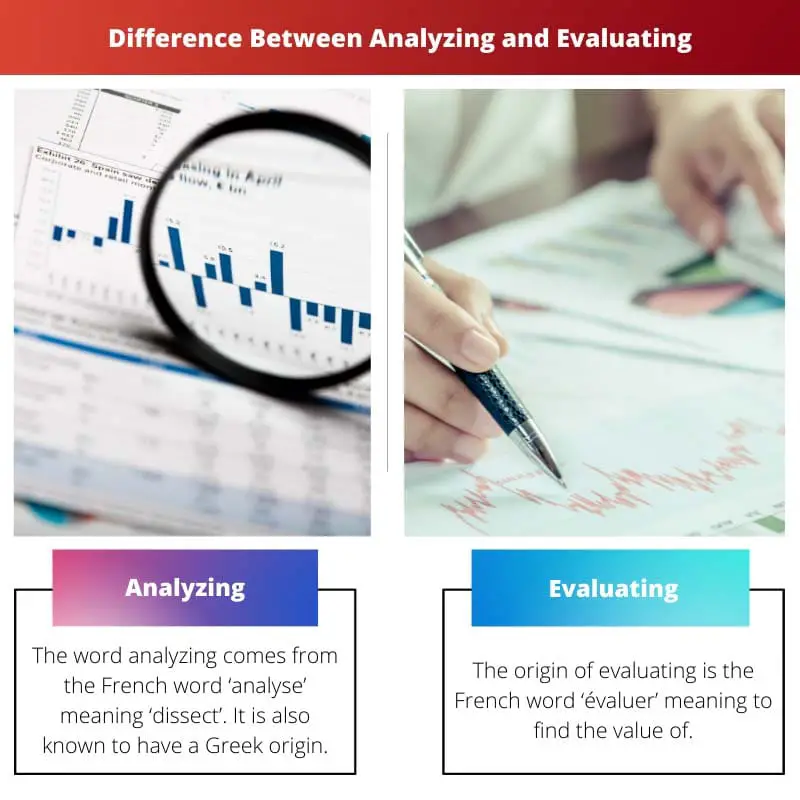Analyzing and evaluating are two terms that go hand in hand. They are terms commonly used in research and data science or any field that needs to understand and process the given data.
Since they are used together, it becomes difficult to differentiate between the two terms properly. So what is it that makes the two terms different?
Key Takeaways
- Analyzing involves examining the components of a subject, idea, or object in a detailed and systematic manner to understand its structure, relationships, or patterns.
- Evaluating entails assessing the value, importance, or quality by making judgments or forming conclusions based on established criteria or standards.
- The main distinctions between analyzing and evaluating lie in their objectives and outcomes. Analyzing focuses on understanding and breaking down a subject while evaluating aims to determine its value or merit.
Analyzing vs. Evaluating
Analysis is a crucial step in academic studies, analysis involves curiosity and deep understanding of a problem and interpreting the solution objectively. It involves explaining a phenomenon. Evaluation is relatively subjective which involves reaching a decision about an individual’s capabilities and skills.

Analyzing is breaking down and interpreting the given data. This is used to obtain the data’s factors, effects, and importance.
This requires longer thought processes since the data needs to be broken down for a further explanation. Evaluating is the process that comes after analyzing.
They provide the conclusion or the result of the research conducted on the data. Evaluating data requires fewer thinking skills since it only determines the value and gives a short conclusion.
Comparison Table
| Parameters of Comparison | Analyzing | Evaluating |
|---|---|---|
| Data | Studies and understands data | Determines the importance and value of the data |
| Thinking process | Longer and complex thinking process since the data needs to be broken down | It shorter thinking process since it only concludes |
| Concerns | Concerned with the definitions and implications of the data | Concerned with the extent of the quality of the data |
| Association | More associated with objectivity | More associated with subjectivity |
| Utilized | Utilized in academic researches | Utilized to determine the pros and cons of the data |
| Result | Not necessary to obtain a result | The result is compulsory |
What is Analyzing?
The word analyzing comes from the French word ‘analyse,’ meaning ‘dissect.’ It is also known to have a Greek origin.
The process of analyzing is of six types based on the data received. Analyzing explains and develops the data by breaking them into less complex data.
Analyzing not only breaks down the data but also helps to form other data or details from the one broken down. It gives a wider perspective on all the collected data.
This process is the first step adopted by people in the field of research. Therefore, analyzing is a widely used process in research and academics.
Since analyzing involves a lot of complex processes, from breaking down data to explaining it, it involves a more elaborate thinking process. They are also very objective.

What is Evaluating?
The origin of the word evaluating is also different from analyzing. This is because the origin of evaluating is the French word ‘évaluer,’ meaning to find the value of.
So, one can say that evaluating is the process of finding the value of the given data. It also finds feasibility.
It gives the data quality rather than finding new skills from it. There are two types of evaluating processes: formative and summative.
Formative evaluation is when the data is assessed, and the skill sets required for the data are obtained. Summative evaluation is determining or knowing the goal set during analyzing of the data achieved.
Since evaluating is a conclusive process, this is done after the data is analyzed. It is also associated with subjective thinking and therefore requires less thinking process than analyzing.

Main Differences Between Analyzing and Evaluating
- Though the two terms go hand in hand, the process involved with the data is different. Analyzing is the process in which the data is broken down for further explanation. It helps in understanding the given data while evaluating data means to give a value or to finding the importance of the data.
- Analyzing is normally only concerned with the definitions and implications of the data. This is not the case while evaluating since it is concerned with the quality of the data and extent.
- The thought process involved in both processes is also different. Since analyzing requires breaking down data, there is always the need for an elaborate thinking process, which is not required for evaluating. This only concludes the power of the given data.
- Since analyzing includes breaking down compound data, they are more objective than evaluating. Evaluating is only associated with subjective skills rather than objective.
- The data found by analysis is used in the research and academic fields. Evaluating is not used in academic research but rather in finding the data’s pros and cons or conclusions.
- Since analyzing only helps explain or develop the data further, there is no need for a result. But evaluating is the process that gives the conclusion to the data being analyzed, so having a conclusion is necessary.





